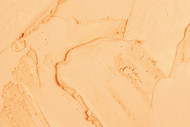This blog was written in collaboration with our friends at Tailor Skincare, and includes the 5 Essential Tips For Low-Tox Skincae that they recommend.
Many of us know that beauty products contain many hidden chemicals and other nasties. This is a big problem as our skin is our key barrier between us and the outside world and what goes onto our skin can be absorbed into the bloodstream.
But what we should be looking for (and avoiding) in these skincare and beauty products can also lead to a huge amount of confusion!
To help with this, we asked our friends over at Tailor Skincare to shed some light on this subject.
5 Essential Tips For Low-Tox Skincare with Tailor Skincare
1. Watch out for Paraben Preservatives
All water-based skincare needs a preservative. Without it they would need to be kept in the fridge and would expire after 3 weeks, less than ideal!
Many skincare products will use parabens as the preservative. The problem is that parabens are a xenoestrogen and these are often hidden in unsuspecting skin care products such as deodorants, sunscreens and even lip balms. Xenoestrogens are toxic, synthetic chemicals that mimic natural oestrogen. Once they enter the body, they block our oestrogen receptor sites. Over time this creates an excess of oestrogen activity in relation to our other hormones, causing the common hormonal imbalance, oestrogen dominance. If you want to learn more about this, BePure's sister company Eve Wellness explains why oestrogen dominance is one of the most common hormonal imbalances.
2. Mineral Oils
Although this might sound like something naturally occurring, mineral oil is a synthetic chemical that belongs to a group of chemicals called hydrocarbons. It is widely used in skincare because of its smoothing texture when applied to the skin. Unfortunately, these simply coat the skin but don't provide any nourishment or benefit.
In addition, creams that combine mineral oil and paraffin can actually damage the skin barrier and increase water loss.
3. Don't be Afraid of Botanical Names
Many natural products will be listed by its botanical name in the ingredient list. For example jojoba's botanical name is Simmondsia chinensis. While these names can look scary, check for the common name next to it in brackets to put you at ease.
4. Always Question Fragrances
This is a tricky one, in order to protect a company’s "secret scent formulas", brands don't have to disclose what's in their fragrances. Unfortunately this means many fragrances are hiding all sorts of nasties – including parabens and phthalates. Also, although it's often listed as a single item in the ingredients, it's usually a blend of many ingredients.
It's really important to look for brands that disclose the quality of their fragrance ingredients. At Tailor Skincare, the bespoke Tailor fragrance is blended in France using natural ingredients, including a series of essential oil components and nothing synthetic.
If a brand doesn't list this you can always email them to ask about it or check their website's FAQs.
5. Zero out the Xenoestrogens
In addition to parabens which we now know are xenoestrogens, here are some common xenoestrogen ingredients to steer clear of in skincare and beauty products:
- Parabens (like methylparaben), a commonly used preservative in skincare products.
- 4 MBC (4 Methylbenzylidene Camphor), a synthetic sun protection factor (SPF) material found in many modern sunblocks
- Phthalates, a plasticising material commonly found in nail polish and mascara
- Trisodium phosphate (TSP), used as cleaning agent, lubricant, food additive or stain remover.
Toxins like these that enter our body must be processed and removed. The more toxins that enter our body, the harder our body has to work to remove them.
We hope this blog can bring some awareness to a lot of the hidden sources of extra work for our bodies. When we are aware of what’s going on, we can begin to implement some positive and nourishing changes.
If you want to learn more about which commonly used chemicals have been proven to cause harm, and see which companies have clean ingredients and eco-friendly policies, check out Safe Cosmetics.
Making the change to natural products doesn't need to be done all at once of course, and don’t put pressure on yourself to do so! Making small changes over time, replacing beauty and skincare products with natural alternatives as they run out is a great approach. Remember, all of the little things we do add up.
Looking for other ways to reduce environmental toxins in your life? Check out BePure's 10 Tips to ‘Low-Tox’ your Home and Support Your Immune System.

